Skin Care
Best Face Masks for Different Skin Types.
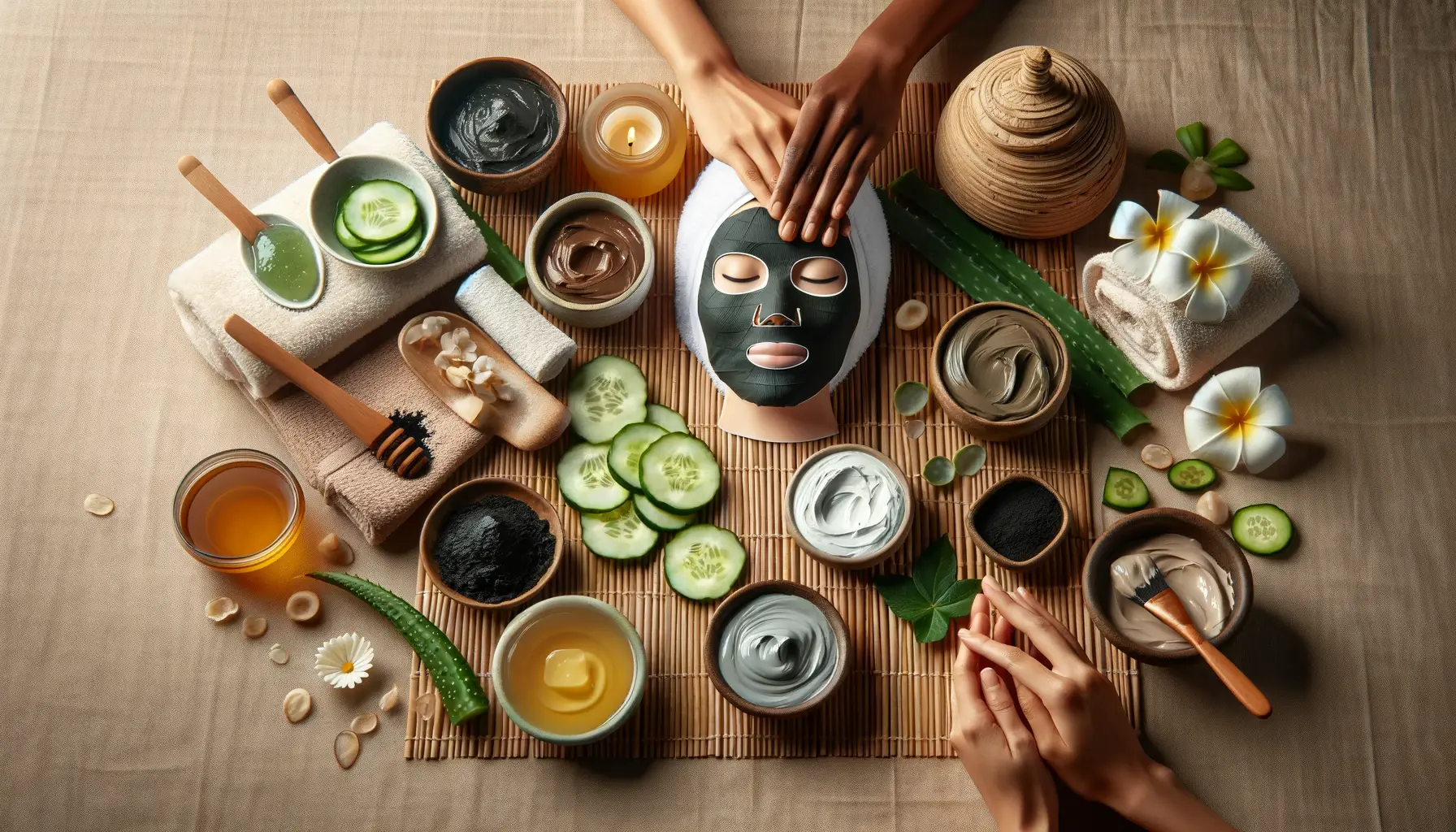
Imagine your skin as a canvas that reflects your inner health and outward care. You’re in search of the ideal face mask to nourish this canvas, catering to its unique texture and needs.
If your skin’s oily, you’ll want a mask that’s like a sponge for excess oil, leaving you with a balanced glow.
Dealing with dryness? You’re looking for a hydrating hero to quench your skin’s thirst.
For those with sensitive skin, you’ll need a gentle touch, a mask that’ll soothe without irritation.
And if you’re juggling multiple skin issues, there’s a multi-tasking marvel waiting for you.
Let’s find the mask that fits your skin’s personality, so you can serve yourself the radiant, healthy skin you deserve.
Key Takeaways
- Dry skin needs hydrating and nourishing masks to restore moisture and combat flakiness.
- Oily skin benefits from clay masks, charcoal masks, and masks with salicylic acid to absorb excess oil and unclog pores.
- Sensitive skin requires gentle masks with calming ingredients like aloe, chamomile, and cucumber extract to avoid irritation.
- Combination skin can benefit from clay masks, hydrating masks, sheet masks, and brightening masks to address different skin concerns in various areas.
Understanding Skin Types
Your skin type, whether it’s dry, sensitive, combination, or oily, greatly influences which face mask will work best for you. If you’re helping someone establish a self-care routine or seeking to enhance your own, it’s crucial to understand these differences.
Dry skin needs nourishing ingredients that hydrate and restore moisture. You’ll want to opt for creamy, rich masks that soothe and combat flakiness. For sensitive skin, gentle, non-irritating formulas are key to avoid redness and discomfort. Look for masks with calming agents that’ll pamper the skin without causing irritation.
If you’re dealing with combination skin, it’s about balance. A mask that purifies the T-zone while moisturizing dry patches will serve you well. Seek out masks designed specifically for combination skin that offer a dual-action approach.
Oily skin requires a mask that can manage excess sebum without stripping away necessary moisture. Clay or charcoal masks are your allies here, absorbing oil and preventing clogged pores. Remember, the right face mask can be a powerful tool to help anyone achieve a clearer, more radiant complexion. Choose wisely based on skin type to provide the most beneficial care.
Masks for Oily Skin
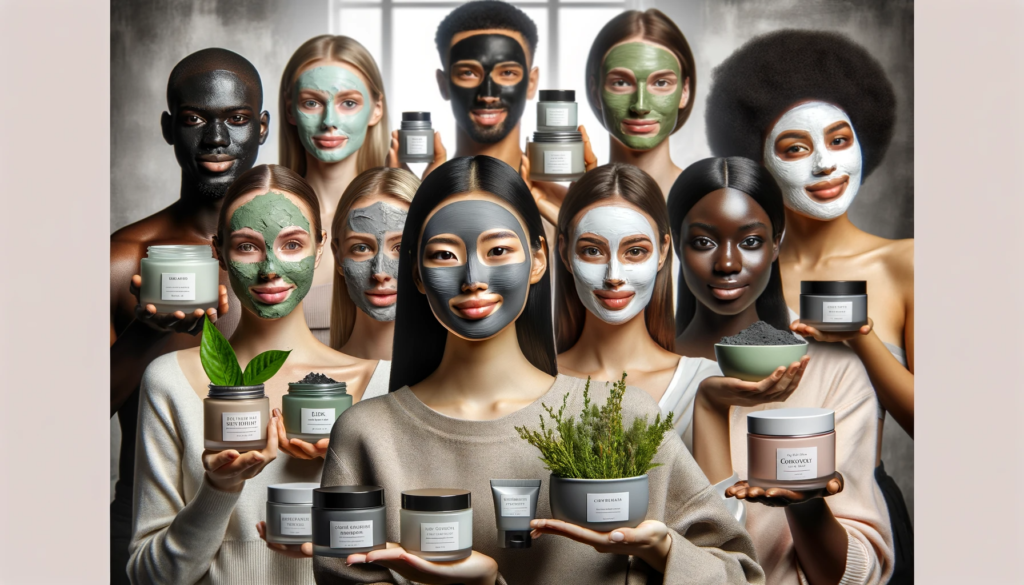
For those of you with oily skin, clay and charcoal masks will be your go-to for controlling shine and unclogging pores. A high-quality clay mask is designed to absorb excess oil, leaving your skin feeling balanced and refreshed. The natural minerals in clay not only soak up oil but also gently decongest pores, making it an excellent choice for those who want to maintain a clear and matte complexion.
Additionally, a charcoal mask can be a powerful ally in your skincare arsenal. Activated charcoal is renowned for its ability to draw out dirt and impurities from congested pores. This results in a smoother skin texture and a reduction in the appearance of enlarged pores.
When you’re looking to enhance the effectiveness of your mask routine, keep an eye out for products with salicylic acid. This beta hydroxy acid excels at providing gentle exfoliation, working to slough off dead skin cells and further decongest pores. Salicylic acid is especially beneficial for those with oily skin prone to breakouts, as it helps to prevent new pimples from forming.
Selecting the right mask can empower you to serve your skin’s needs effectively, ensuring that you’re always putting your best face forward.
Dry Skin Solutions

Transitioning from managing oily skin, you’ll find that choosing the right face mask for dry skin is crucial for restoring hydration and achieving a supple complexion. Your parched skin needs a hydrating face mask enriched with ingredients like hyaluronic acid, which is a hydration powerhouse. This magical component retains moisture levels, leaving your skin feeling plump and nourished.
To further cater to your skin’s needs, look for masks infused with nourishing oils such as jojoba or argan oil. These oils aren’t only hydrating but also help to reinforce your skin’s natural barrier, sealing in moisture for longer-lasting softness.
And if you’re grappling with sensitivity, a mask for sensitive skin with soothing ingredients such as aloe vera or chamomile can provide relief without causing irritation.
Sensitive Skin Picks
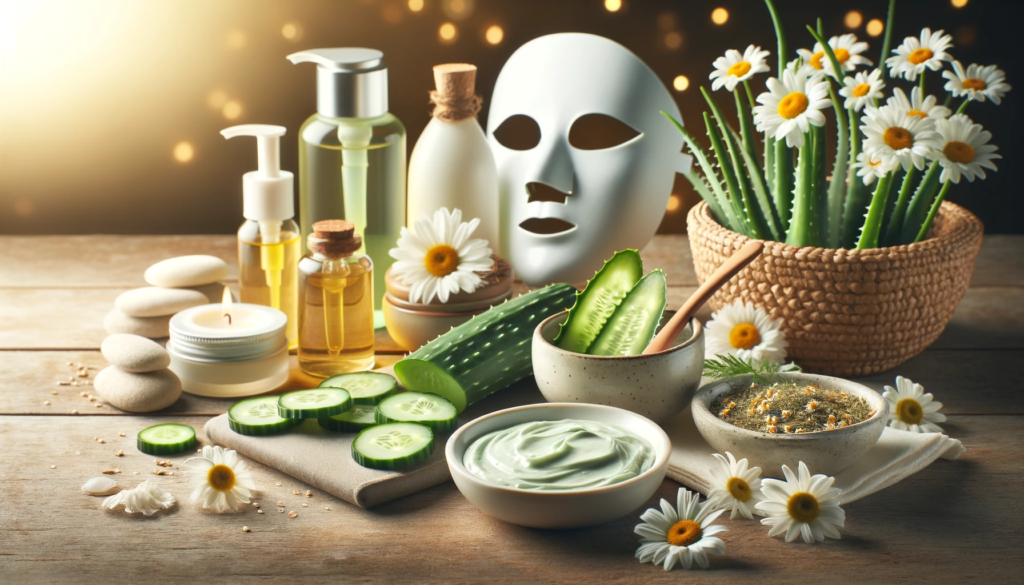
Many face masks cater to sensitive skin, but you’ll want to choose one that’s gentle and free from irritants to avoid unwanted reactions. When you’re on the hunt for sensitive skin picks, it’s essential to look for a mask that’s gentle and formulated with skin-loving, calming ingredients.
Here’s a guide to help you find the perfect soothing mask:
- Calming Ingredients:
- Hyaluronic acid: Helps retain moisture without causing irritation.
- Aloe: Known for its soothing and healing properties.
- Chamomile and cucumber extract: Provide a gentle calming effect.
When you’re selecting a mask for sensitive skin, remember to:
- Avoid Common Irritants:
- Skip masks with alcohol and fragrance.
- Opt for products with a minimal list of ingredients.
Finally, to ensure that you’ve chosen the right product:
- Patch Test First:
- Always test the mask on a small area before full application.
- Watch for adverse reactions in the test area to prevent a full-face breakout.
Combination Skin Favorites
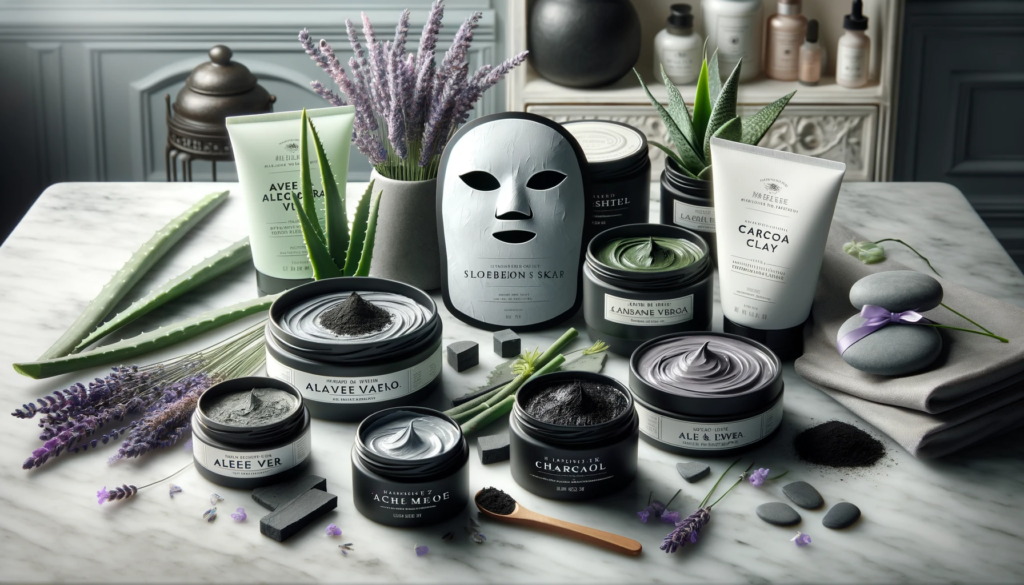
You’ll often find that combination skin requires a mask that can multitask, targeting both dry and oily areas effectively. Clay masks and charcoal masks are go-to options for the T-Zone, where oiliness tends to be more pronounced. Meanwhile, a hydrating mask can quench the thirst of drier cheeks and jawline areas. Sheet masks are particularly versatile – some come with different ingredients in separate sections, specifically designed for combination skin.
To help you serve your skin’s needs better, here’s a table highlighting some top picks for combination skin:
| Type of Mask | Benefits | Ideal for |
|---|---|---|
| Clay Masks | Absorbs excess oil, minimizes pores | T-Zone |
| Charcoal Masks | Detoxifies, draws out impurities | Oily Areas |
| Hydrating Mask | Moisturizes, prevents flakiness | Dry Patches |
| Sheet Masks | Customizable, targeted care | Whole Face |
| Brightening Masks | Evens out skin tone | Discolored Areas |
Acne-Prone Skin Remedies
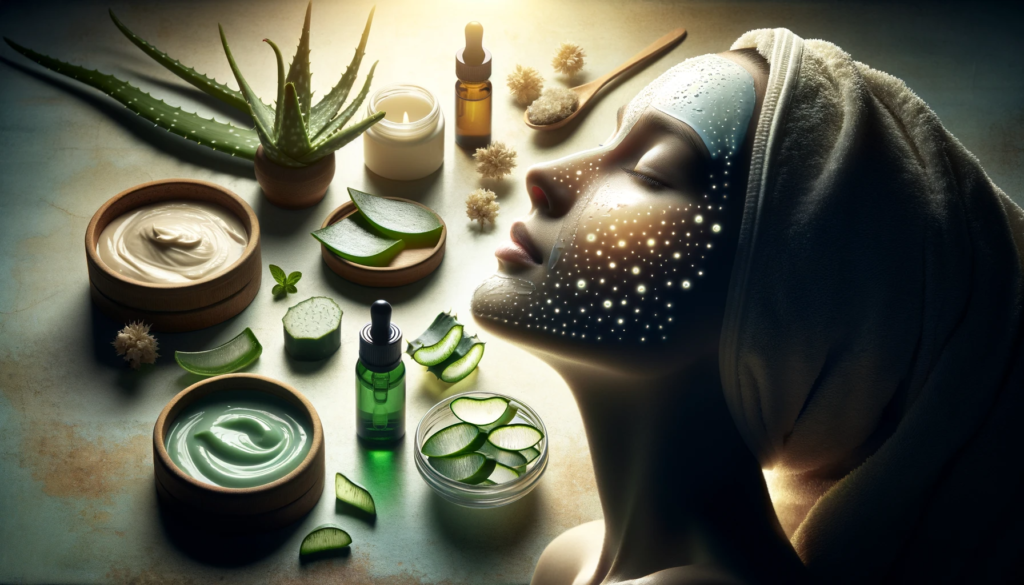
If you’re frequently battling breakouts, consider incorporating a mask with salicylic acid or benzoyl peroxide into your skincare routine. These ingredients can help target the root causes of acne-prone skin by combating bacteria and helping to unclog pores.
Here’s how you can serve yourself and your skin with the best remedies:
- Choose Your Ingredients Wisely
- Salicylic acid: Exfoliates and unclogs pores to prevent new breakouts.
- Benzoyl peroxide: Kills acne-causing bacteria and helps heal existing blemishes.
- Tea tree oil: Offers natural antibacterial and anti-inflammatory benefits.
When selecting a mask, it’s also worth considering clay and charcoal options. They’re especially beneficial for drawing out impurities and absorbing excess oil, which can be a boon for those with oily or hormonal acne. Masks with these ingredients can provide a deep cleanse and are gentle enough for regular use.
Remember to patch-test any new product to ensure it doesn’t irritate your skin. Consistency is key, so integrate these masks into your routine 1-2 times a week for the best results.
Anti-Aging Mask Options
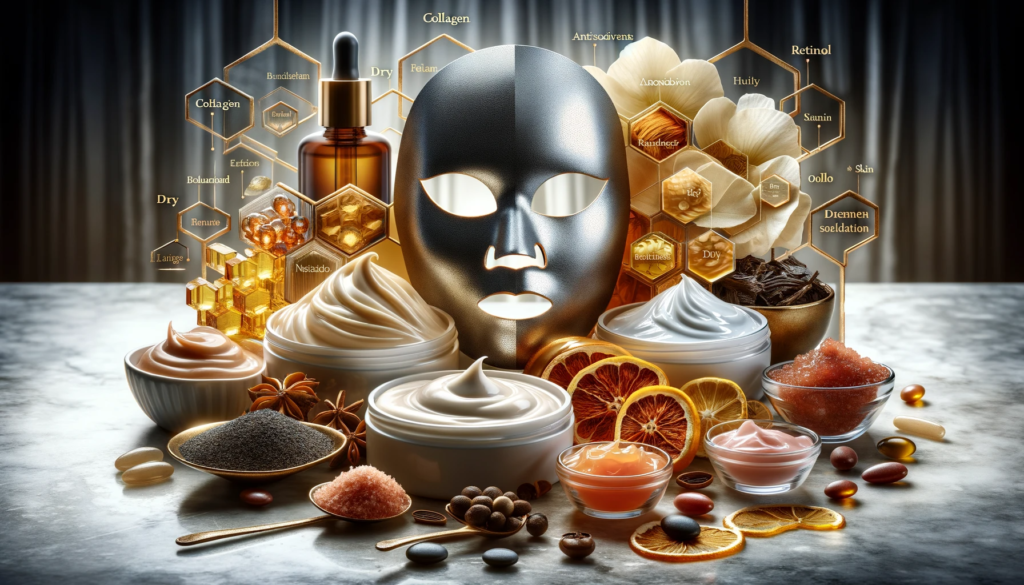
In addition to combating acne, you’ll find that anti-aging masks with ingredients like retinol or hyaluronic acid can significantly reduce signs of aging and rejuvenate your skin. These powerhouse components work tirelessly to smooth out fine lines and hydrate your skin at a deep level.
Imagine the satisfaction of helping someone discover the best face masks that not only address their immediate concerns but also protect their skin for years to come.
For an extra boost, look for masks that contain vitamin C. This potent antioxidant aids in collagen production and evens out skin tone, enhancing the youthful glow of those you care for. An overnight mask enriched with these ingredients acts while they sleep, providing an intensive treatment that works in harmony with the body’s natural repair cycle.
Don’t forget the appeal of a good peel-off mask. It’s not just about the immediate satisfaction of peeling away impurities; these masks can also contain anti-aging ingredients that leave skin looking firmer and more radiant.
Frequently Asked Questions
What Face Masks Should You Choose for Your Skin Type?
You should select a face mask that aligns with your unique skin needs. Clay for oily, hydrating for dry, and gentle exfoliants for sensitive skin ensure you’re giving your complexion the best care.
Which Peel off Mask Is Best for All Skin Types?
You’ll struggle to find a peel-off mask that’s perfect for all skin types, as they often target specific concerns and might not address the unique needs of your individual skin condition.
What Type of Face Mask Should I Use?
You should choose a mask that targets your unique skin concerns, like dryness or acne. Look for ingredients that nourish, such as hyaluronic acid for hydration or salicylic acid for breakouts.
Which Sheet Mask Is Best for All Skin Types?
You’re looking for a sheet mask that suits all skin types? Pipette Overnight Brightening Mask is a versatile choice, offering hydration and glow without overburdening any specific skin concern. Give it a try!
Conclusion
You’ve navigated the skincare maze and discovered your skin’s perfect mask match. Whether it’s absorbing excess oil, quenching dryness, soothing sensitivity, balancing combination, tackling acne, or fighting the signs of aging, you’re now equipped to give your skin the TLC it deserves.
Embrace this beauty adventure and watch as your chosen mask reveals a more radiant you. Go on, pamper yourself—you and your glowing complexion are worth it!
Skin Care
How to Get Rid of Blackheads and Avoid Getting Them Again
Troubled by persistent blackheads? Uncover proven strategies and daily habits to achieve clear, smooth skin

You’ve just finished a long day, and as you begin your nightly skincare routine, you’re greeted by a familiar and unwelcome sight: a smattering of blackheads across your nose and chin. Despite your best efforts, they seem to persist, each tiny, darkened pore a stubborn reminder of your ongoing battle with your skin. But take heart, because the path to a clearer complexion doesn’t have to be a mystery. Armed with the right knowledge and tools, you can send those blackheads packing and learn how to prevent their return. In the following sections, we’ll explore the science behind these blemishes, effective treatments you can do at home, and professional solutions that could offer long-term relief. But first, let’s dig into the daily habits and skincare missteps that might be unwittingly contributing to the problem, and how minor adjustments could make a major difference in keeping your skin smooth and blackhead-free.
Key Takeaways
- Salicylic acid-based products and retinoid creams are effective at-home treatments for blackheads.
- Professional dermatological solutions like prescription-strength retinoids, chemical peels, microdermabrasion, and comedone extractors can be used for more severe cases.
- Daily prevention techniques include washing the face twice daily, using noncomedogenic products, applying sunscreen, avoiding touching the face, and changing pillowcases regularly.
- Harsh scrubs, manual extractions, popping blackheads, and inconsistent care can worsen blackheads and lead to inflammation, damage, infection, and scarring. Gentle, consistent care and evidence-based treatments are key to getting rid of blackheads and preventing their recurrence.
Understanding Blackheads
To effectively tackle blackheads, it’s crucial to recognize that they stem from a complex interplay of sebum accumulation, dead skin cell buildup, and bacterial growth within your hair follicles. Often referred to as open comedones, these blemishes are a form of comedonal acne that’s visible on the skin’s surface as small, dark spots primarily due to the oxidation of the material within the pore.
If you’re committed to helping others manage this skin concern, it’s essential to understand the role of sebaceous glands in blackhead formation. These glands produce sebum, an oily substance meant to lubricate the skin and hair. However, overproduction, influenced by hormonal changes or genetic factors, can lead to congestion within the hair follicle.
The accumulation of dead skin cells exacerbates this blockage, creating an ideal environment for the C. acnes bacteria to thrive. This bacterial presence can contribute to the inflammation seen in more severe cases of acne. By addressing these factors with evidence-based treatments such as retinoids, which regulate skin cell turnover, and salicylic acid, which dissolves buildup, you can provide effective solutions for those struggling with blackheads. Remember, a gentle approach to your skins health will yield the best results.
At-Home Treatment Options
Several at-home treatment options exist for managing blackheads, including the use of salicylic acid-based products and retinoid creams that effectively unclog pores and encourage skin renewal. When selecting a salicylic acid wash, ensure it’s formulated to exfoliate skin cells gently, preventing the accumulation of debris that can lead to blackheads. This ingredient is well-known for its ability to penetrate follicles and dissolve the intercellular glue that holds skin cells together, facilitating the unclogging of pores.
Additionally, incorporating noncomedogenic products into your skincare routine can prevent the blockage of pores by avoiding ingredients that are likely to cause comedones, (blackheads and whiteheads). Noncomedogenic products are specifically designed to not clog pores, which is essential for maintaining clear skin.
Retinoid creams, derived from vitamin A, are another cornerstone of blackhead prevention and treatment. They not only unclog pores but also speed up cell turnover, helping to prevent the formation of new blackheads. While over-the-counter options are available, you may require a prescription for stronger formulations.
For a more intensive treatment, consider a chemical peel, which uses acids such as salicylic, glycolic, or retinoic to deeply exfoliate and clear out pores. Be mindful that these should be performed cautiously, and you should always follow up with proper moisturization to support skin barrier integrity.
Professional Dermatological Solutions
When tackling persistent blackheads, consulting a dermatologist can provide you with access to specialized treatments and personalized advice that go beyond over-the-counter products. These professionals are equipped to evaluate your skin and tailor a regimen specifically for your needs.
Professional dermatological solutions often include prescription-strength retinoids, which accelerate cell turnover and prevent the clogging of pores. Chemical peels, another effective option offered by dermatologists, use a potent solution to exfoliate the skin deeply, removing dead skin cells and debris that contribute to blackheads.
In-office treatments, such as microdermabrasion, can also be highly beneficial. This procedure gently removes the upper layer of dead skin, promoting a clearer and more rejuvenated complexion. Additionally, a skilled professional might use a comedone extractor, a specialized tool designed to safely remove blackheads without damaging the surrounding skin.
Your dermatologist will also guide you in selecting appropriate noncomedogenic skincare products, reducing the likelihood of future blackheads. Regular follow-ups allow for adjustments in your treatment plan and address new concerns as they arise, ensuring ongoing support in your quest for clear skin. Trust in professional dermatological solutions to effectively manage your blackheads and maintain healthy, radiant skin.
Daily Prevention Techniques
Incorporating a regular facial cleansing routine with a non-abrasive cleanser can significantly reduce the risk of developing blackheads. A salicylic acid cleanser is particularly effective as it penetrates clogged pores and dissolves the build-up of excess oil and dead skin cells. Remember, maintaining a consistent skincare regimen is one of the most reliable daily prevention techniques.
To further prevent new ones from forming and to care for your skin, consider these additional steps:
- Wash your face twice daily: Especially in the morning, before bed, and after sweating to remove impurities.
- Choose noncomedogenic products: These won’t clog your pores, helping to prevent blackheads.
- Apply sunscreen: Protect your skin from the sun to reduce oil production and prevent pore enlargement.
- Keep your hands away: Avoid touching your face to minimize the transfer of oil and bacteria.
- Change pillowcases regularly: This simple habit can reduce the presence of oils and bacteria on your skin.
Regularly using noncomedogenic moisturizers and avoiding the temptation to pick or squeeze blackheads are also crucial for keeping your skin clear. By following these evidence-based suggestions, you’ll be better equipped to serve yourself and maintain a blackhead-free complexion.
Common Blackhead Mistakes
While striving for a clear complexion, it’s crucial to avoid certain common mistakes that can exacerbate blackhead issues rather than alleviate them. Harsh scrubs may seem like a quick fix to remove blackheads, but they often strip away natural oils, prompting your skin to produce even more oil. This overproduction can lead to more stubborn blackheads and a cycle of skin issues.
When you opt for manual extractions or use suction devices, you’re risking inflammation and potential damage to your sensitive skin. These methods might provide immediate gratification, but they can also lead to more serious skin conditions or broken blood vessels, especially if the blackheads are deep below the skin’s surface. Moreover, popping blackheads is not only unsanitary but can also push bacteria deeper, causing an infection and potential scarring.
To prevent blackheads effectively, it’s better to rely on chemical or physical exfoliants designed for regular use and suitable for sensitive skin types. Over-exfoliating can irritate your skin, disrupting its barrier function and leading to excessive oil production. Remember, gentle, consistent care and scientifically backed treatments are key to maintaining a healthy, clear complexion.
Frequently Asked Questions
How Do You Stop Blackheads From Coming Back?
To prevent blackheads from returning, you’ll want to maintain a consistent skincare routine with salicylic acid, avoid heavy makeup, and resist squeezing them to keep your pores clear and reduce oil buildup.
What Causes a Blackhead to Keep Coming Back?
You’re witnessing stubborn blackheads return due to excess oil production, dead skin cell accumulation, and hormonal shifts. Combat them with non-comedogenic products and regular, gentle exfoliation to maintain clear, service-oriented skincare routines.
How Do You Get Rid of Blackheads Permanently?
To permanently eliminate blackheads, you’ll need a consistent skincare routine with salicylic acid, retinoids, and professional treatments, avoiding irritants and pore-clogging products to maintain clear, healthy skin over time.
How Do You Get Rid of Repeat Blackheads?
You’re battling a relentless foe, but with the right strategy, victory’s within reach. Incorporate salicylic acid cleansers and topical retinoids, exfoliate judiciously, and seek professional treatments to banish repeat blackheads effectively.
Skin Care
What to Do About Crepey Skin

Are you tired of the troubling texture of crepey skin? The signs of aging can be difficult to accept, but fear not, there are solutions. In this article, we will explore the various approaches to improve the appearance of crepey skin. From topical treatments to in-office procedures, there are options available that can help you achieve a smoother, more youthful complexion. But before we dive into the details, let’s first understand what causes crepey skin and why it happens in the first place. Stay tuned to discover the secrets behind addressing this common skincare concern.
What causes crepey skin?
Crepey skin is caused by various factors, including UV radiation, significant weight fluctuation, alcohol consumption, lack of moisture in the skin, and certain medications such as prednisone. UV radiation from the sun is a major contributor to crepey skin. Prolonged exposure to the sun’s harmful rays can damage the collagen in your skin, leading to loss of elasticity and the formation of wrinkles. Protecting your skin from the sun by using sunscreen and wearing protective clothing can help prevent crepey skin caused by sun damage.
Significant weight fluctuation can also contribute to crepey skin. When you gain or lose weight rapidly, it can cause the skin to stretch or shrink, resulting in a loss of elasticity. Maintaining a stable weight through a balanced diet and regular exercise can help prevent crepey skin caused by weight fluctuations.
Alcohol consumption can dehydrate the skin, leading to a lack of moisture and making it more prone to crepey skin. Limiting your alcohol intake and ensuring you stay hydrated by drinking plenty of water can help keep your skin moisturized and prevent crepey skin.
Certain medications, such as prednisone, can also contribute to the development of crepey skin. These medications can affect collagen production and lead to thinning of the skin. If you are taking any medications that may be causing crepey skin, it is important to discuss this with your healthcare provider to explore alternative options.
Incorporating skincare products that contain vitamin C can also help prevent crepey skin. Vitamin C is known to boost collagen production and improve the overall appearance of the skin. Using a daily moisturizer or serum that contains vitamin C can help maintain the elasticity and firmness of your skin.
How to get rid of crepey skin
Looking to get rid of crepey skin? There are several ways you can improve the appearance and texture of your skin. Incorporating certain products and making changes to your skin care regimen can help prevent and reduce crepey skin. One key ingredient to look for in skin care products is vitamin C. Vitamin C is known to boost collagen production, which can improve the elasticity and firmness of your skin.
To improve crepey skin, consider using topical creams or serums that contain vitamin C. These products can be applied directly to the affected areas and can help stimulate collagen production, reducing the appearance of crepiness over time. Additionally, incorporating a daily moisturizer with hyaluronic acid can help keep your skin hydrate and maintain its elasticity.
In addition to using vitamin C products, it is important to protect your skin from further damage. Make sure to use a broad-spectrum sunscreen with SPF 30 or higher to shield your skin from harmful UV radiation. UV exposure can accelerate the breakdown of collagen and elastin, leading to more pronounced crepey skin.
Aside from using products, there are other steps you can take to improve the appearance of crepey skin. Consider incorporating foods rich in antioxidants into your diet, such as fruits and vegetables. Antioxidants can help protect your skin from free radicals and promote overall skin health. Regular exercise and stress management can also contribute to healthier, more youthful-looking skin.
Frequently Asked Questions
Can You Really Get Rid of Crepey Skin?
Yes, you can really get rid of crepey skin. Consult a dermatologist or skincare professional for personalized treatment options, like topical creams and in-office procedures. Lifestyle changes and regular follow-up appointments can also help improve the appearance of your skin.
Is Crepey Skin Reversible?
Yes, crepey skin is reversible to some extent. Treatments like retinoid creams, in-office procedures, and lifestyle changes can improve its appearance. Consulting a dermatologist or skincare professional is important for personalized treatment options.
What Vitamin Is Lacking for Crepey Skin?
The vitamin lacking for crepey skin is vitamin C. It’s important for collagen production and skin elasticity. You can improve the appearance by increasing your intake through diet or supplements, and using topical creams or serums.
Why Is My Skin Crepey All of a Sudden?
Your skin may become crepey suddenly due to factors like UV radiation, weight fluctuation, alcohol, dryness, and certain medications. To address this, consult a dermatologist for personalized treatment options and follow-up appointments.
Skin Care
Skin Care Products That Diminish Hyperpigmentation
Pigmentation-correcting skin care products are the key to achieving a more even complexion, but do you know which ingredients can make a real difference?

Dealing with hyperpigmentation can be frustrating, and finding the right skin care products to address it is crucial for achieving a more even complexion. You may have tried various creams and serums without seeing significant results, but there are specific ingredients and formulations that can make a real difference. Understanding how these products work and the best ways to incorporate them into your routine is key to achieving the results you desire. But what exactly are these magical ingredients and how can they help you achieve a more radiant and even skin tone?
Key Takeaways
- Skin brightening serums with key ingredients like Vitamin C, Glycolic Acid, Salicylic Acid, Niacinamide, and Retinol are effective in reducing hyperpigmentation and promoting an even skin tone.
- Hyperpigmentation treatments such as Vitamin C serums, Tranexamic Acid creams, Azelaic Acid lotions, and Niacinamide treatments are recommended for reducing dark spots and improving skin texture.
- Dermatologist-recommended dark spot correctors, like SkinMedica Lytera 2.0 Pigment Correcting Serum, containing ingredients like niacinamide, tranexamic acid, vitamin C, retinol, and azelaic acid, are effective for addressing hyperpigmentation concerns in various skin types.
- Fast-acting hyperpigmentation solutions involve using products with potent ingredients like azelaic acid, vitamin C, kojic acid, alpha-arbutin, retinol, glycolic acid, and salicylic acid, along with consistent sunscreen application to prevent further sun damage and discoloration. Consistency and commitment are key for achieving the best results.
Top 10 Skin Brightening Serums
When it comes to addressing hyperpigmentation and achieving a brighter, more even skin tone, incorporating a high-quality skin brightening serum into your daily skincare routine can make a significant difference. The first key ingredient to look for in skin brightening serums is vitamin C, which is known for its ability to brighten and even out skin tone, reduce dark spots, promote collagen production, and protect against sun damage. Another essential ingredient to consider is glycolic acid, which helps to exfoliate the skin and fade hyperpigmentation over time. Salicylic acid is also beneficial, especially for those with acne-prone skin, as it addresses hyperpigmentation without causing breakouts. Niacinamide is another ingredient to keep in mind, as it helps to improve the appearance of enlarged pores, uneven skin tone, and fine lines. Lastly, retinol is known for its ability to promote skin renewal and enhance collagen production, which can contribute to a more even skin tone. By incorporating these key ingredients into your skincare routine, you can effectively combat hyperpigmentation and achieve a brighter, more radiant complexion.
Best Hyperpigmentation Treatments of 2024
Looking for the best hyperpigmentation treatments of 2024? When it comes to addressing dark spots and uneven skin tone, the best products are those that are specifically formulated to diminish hyperpigmentation effectively. Consider the following options for the best hyperpigmentation treatments:
- Vitamin C Serums: These products are packed with antioxidants that help to brighten the skin and fade dark spots over time. Look for serums with stable forms of vitamin C for maximum effectiveness.
- Tranexamic Acid Creams: Tranexamic acid is known for its skin-brightening properties and is effective in reducing hyperpigmentation, especially for those with melasma or post-inflammatory hyperpigmentation.
- Azelaic Acid Lotions: Azelaic acid not only targets hyperpigmentation but also helps to improve overall skin texture, making it a great option for those dealing with both dark spots and uneven skin.
- Niacinamide Treatments: Niacinamide is a versatile ingredient that not only helps to reduce hyperpigmentation but also offers additional benefits such as reducing the appearance of pores and improving skin elasticity.
These products, when used consistently, can help diminish hyperpigmentation and promote a more even skin tone, providing you with the best results in 2024.
Dermatologist-Recommended Dark Spot Correctors
You can find dermatologist-recommended dark spot correctors for various skin types, each containing effective ingredients like vitamin C, retinol, niacinamide, and azelaic acid. These products are formulated to target hyperpigmentation and are recommended by board-certified dermatologists for their efficacy. For instance, SkinMedica Lytera 2.0 Pigment Correcting Serum is a popular choice as it contains niacinamide and tranexamic acid, which are known to address hyperpigmentation concerns. Azelaic acid, another active ingredient found in some dark spot correctors, is particularly beneficial for those with sensitive skin. Dermatologist-recommended dark spot correctors cater to a wide range of skin types, including mature and acne-prone skin, ensuring that individuals with different needs can find suitable products. When seeking these products, consider the advice of a board-certified dermatologist to determine the most effective dark spot corrector for your specific skin concerns. Remember to incorporate these products into a comprehensive skincare routine, including the use of sunscreen, to achieve the best results in diminishing hyperpigmentation.
Fast-Acting Hyperpigmentation Solutions
Building on the dermatologist-recommended dark spot correctors discussed previously, fast-acting hyperpigmentation solutions offer targeted and effective ingredients to quickly diminish dark spots and uneven skin tone. When looking for fast-acting hyperpigmentation solutions, consider the following:
- Potent Ingredients: Look for products containing potent ingredients such as azelaic acid, vitamin C, kojic acid, and alpha-arbutin, which inhibit pigment production and brighten the skin.
- Cell Turnover: Seek products with ingredients like retinol, glycolic acid, and salicylic acid, as they increase cell turnover to diminish hyperpigmentation and promote a more even skin tone.
- Sun Protection: Opt for solutions that emphasize the importance of sunscreen to prevent further sun damage and discoloration. Daily SPF protection is essential to maintain the results of fast-acting hyperpigmentation solutions.
- Consistency: Commitment and consistency are crucial for achieving the best results. Follow a personalized skincare routine that addresses your specific concerns and incorporate fast-acting hyperpigmentation solutions as an effective choice for brightening and evening out your skin tone.
Effective Over-the-Counter Products
When treating hyperpigmentation, it's important to consider effective over-the-counter products that contain ingredients such as azelaic acid, vitamin C, kojic acid, and alpha-arbutin. These ingredients are known to inhibit pigment production and improve skin texture, helping to reduce the appearance of dark spots and uneven skin tone. To aid in your search for the right product, consider the following table for popular over-the-counter hyperpigmentation products:
| Product Name | Key Ingredients |
|---|---|
| Product A | Vitamin C, Azelaic Acid |
| Product B | Kojic Acid, Alpha-Arbutin |
| Product C | Tranexamic Acid, Niacinamide |
| Product D | Vitamin C, Salicylic Acid |
When selecting over-the-counter products, it's always advisable to consult with a board-certified dermatologist, who can provide personalized recommendations based on your skin type and specific concerns. Additionally, it's essential to prioritize the health of your skin barrier, especially when using products with active ingredients. Be sure to incorporate these products into a comprehensive skincare routine, including daily sunscreen application, to protect against further sun damage and maintain an even skin tone.
Frequently Asked Questions
What Skincare Product Gets Rid of Hyperpigmentation?
To get rid of hyperpigmentation, use products with vitamin C, tranexamic acid, and retinol. Consistent use and daily SPF are crucial. Follow a personalized skincare routine that addresses your specific concerns for the best results.
What Fades Hyperpigmentation the Fastest?
To fade hyperpigmentation the fastest, use products with vitamin C, tranexamic acid, and retinol. Consistency is key, and don't forget SPF. Personalize your skincare routine to address specific concerns and protect against sun damage.
What Really Removes Hyperpigmentation?
To remove hyperpigmentation, focus on consistent use of products with ingredients like vitamin C, tranexamic acid, and retinol. Combine them with daily SPF and a personalized skincare routine to effectively fade dark spots and uneven skin tone over time.
Does Anything Really Work for Hyperpigmentation?
Yes, something really works for hyperpigmentation! Consistently using skin care products with ingredients like vitamin C, tranexamic acid, and retinol can help fade dark spots over time. Don't forget daily SPF for protection.
-
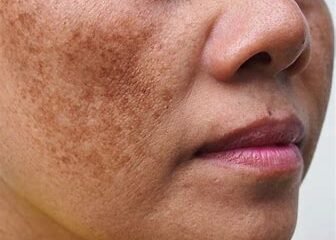
 Skin Care2 years ago
Skin Care2 years agoSkin Care Products That Diminish Hyperpigmentation
-

 Skin Care2 years ago
Skin Care2 years agoUltimate Guide to Identifying Your Skin Type
-

 Brow Care2 years ago
Brow Care2 years agoWhy Brow Gels Can Cause Brows to Fall Out
-

 Brows2 years ago
Brows2 years agoHow to have Thicker Eyebrows
-

 Homemade Beauty2 years ago
Homemade Beauty2 years agoRecipes for Homemade Facials
-

 Skin Care2 years ago
Skin Care2 years agoMorning and Night Skincare Routines for Various Skin Concerns.
-

 Hair-Styling2 years ago
Hair-Styling2 years agoEasy Hairstyles for Busy Mornings.
-

 Lip Care2 years ago
Lip Care2 years agoVegan Lip Care: The Best Cruelty-Free Products




